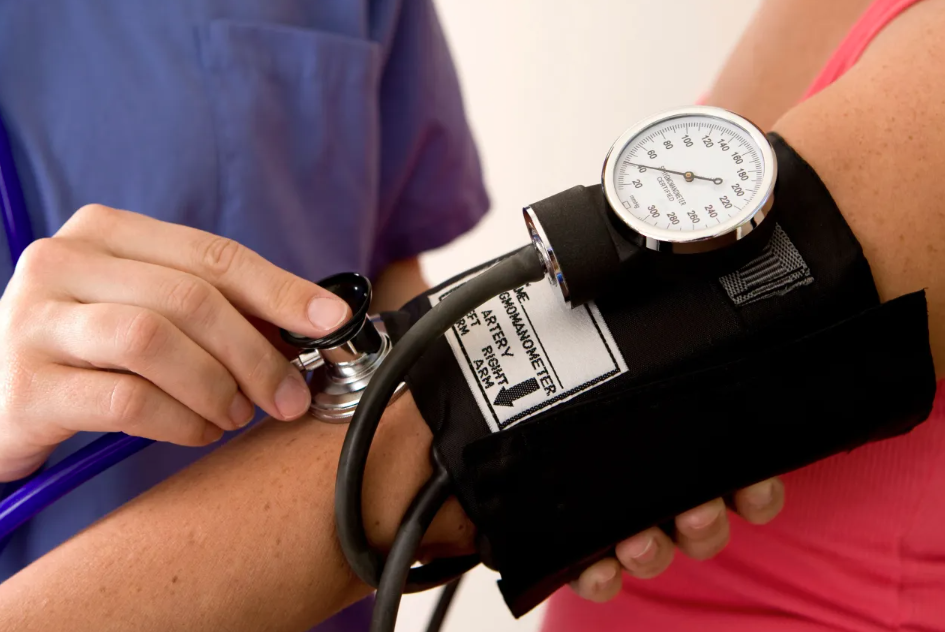A new study published in the Journal of the American Medical Association suggests reducing salt consumption by one teaspoon per day has the same impact as blood pressure medication.
The average American consumes nearly twice the recommended daily sodium intake, according to the FDA. These dietary habits contribute to hypertension, or high blood pressure, in an estimated 119.9 million American adults, per the CDC.
One teaspoon of salt contains 2,400 mg of sodium, Americans consume an average of more than 3,400 milligrams (mg) of sodium per day, according to the CDC.
Researchers from the University of Alabama at Birmingham, Vanderbilt Medical Center and Northwestern Medicine studied a group of 213 individuals between ages 50 to 75, all with unique blood pressure, ranging from normotension (blood pressure in normal range) to untreated hypertension.
Participants were assessed while following their typical diet as well as on high-sodium (2,200 milligrams of sodium added daily) and low-sodium (500-milligram daily total) diets, the study reports.
“A number of studies link high salt intake to high blood pressure and a higher risk of premature death and cardiovascular disease, including heart attacks and strokes,” said Cora Lewis, professor in UAB’s School of Public Health and co-investigator of the study.
When daily salt intake was reduced by less than 1 teaspoon each day (2,300 milligrams of sodium), 70% to 75% of participants — including those already on blood pressure medication — experienced a reduction in blood pressure. In all, 72% of individuals had decreased systolic blood pressure on the low-sodium diet, when compared to their typical diet.
“The results reinforce the importance of reduction in dietary sodium intake to help control blood pressure, even among individuals taking medications for hypertension,” said co-principal investigator Norrina Allen, professor of preventive medicine at Northwestern University Feinberg School of Medicine. “It can be challenging but reducing your sodium in any amount will be beneficial.”
Hypertension is a leading cause of premature death worldwide. An estimated 1.28 billion adults worldwide suffer from hypertension, reports the World Health Organization . Roughly 61.9million U.S. adults take blood pressure medication — but simply decreasing daily sodium intake could be just as beneficial.
“Given that high blood pressure is a huge health issue worldwide, the results provide a promising and accessible way to reduce hypertension caused by sodium intake,” Lewis said. “It is particularly exciting that the products we used in the low sodium diet are generally available, so people have a real shot at improving their health through improving their diet in this way.”
Making simple changes in your diet can significantly reduce daily sodium intake and may be beneficial to your health.
“The majority of sodium in our diets comes from packaged and restaurant food (not the salt shaker) as a result of food processing. Even foods that may not taste salty can be major sources of sodium,” reports the CDC. “Foods with only moderate amounts of sodium, such as bread, can be major sources of sodium because they’re eaten so frequently.”
Speak to a medical professional if blood pressure remains higher than 180/120 mm Hg, after staying rested for at least five minutes, per Medical News Today.
1. Buy fresh, canned or frozen vegetables that contain no added sodium or salty sauces, per the American Heart Association.
2. Cold cuts and cured meats typically contain high levels of salt; swap these deli meats for fresh chicken or turkey, per Harvard Health.
3. When purchasing packaged foods, select options labeled as “low sodium,” “no salt added” or “reduced sodium” if available, per the CDC.
4. Be picky about your condiments. Most condiments, such as salad dressings, ketchup, mustard, soy sauce, salsas and relish, are packed with sodium. Eat these products in moderation and when possible, choose low-sodium options, per the American Heart Association.

